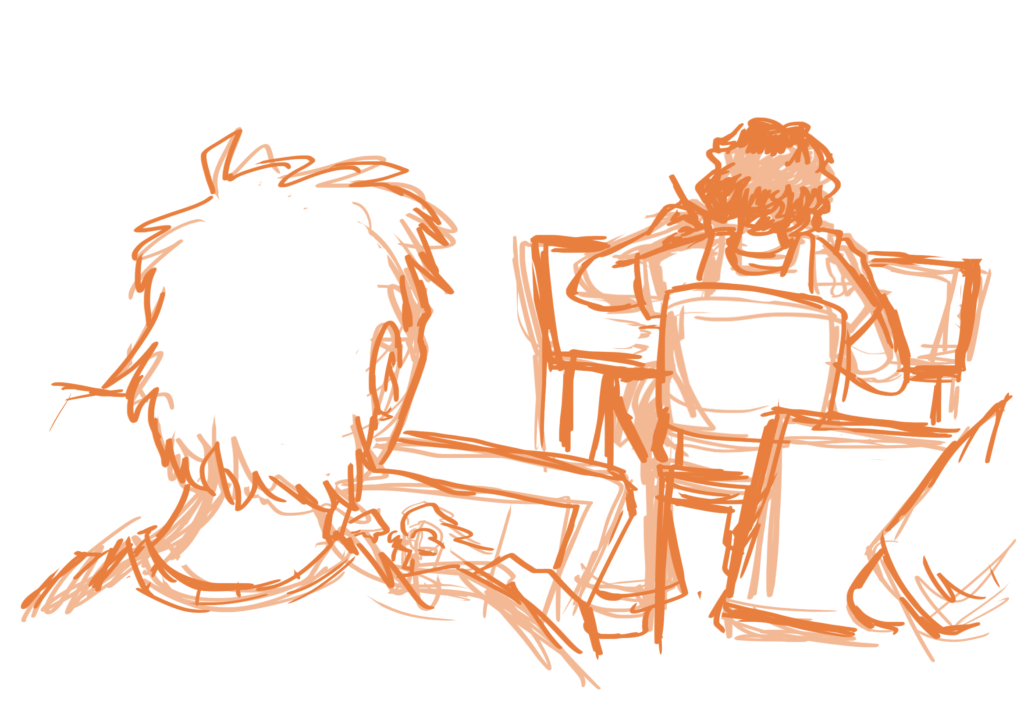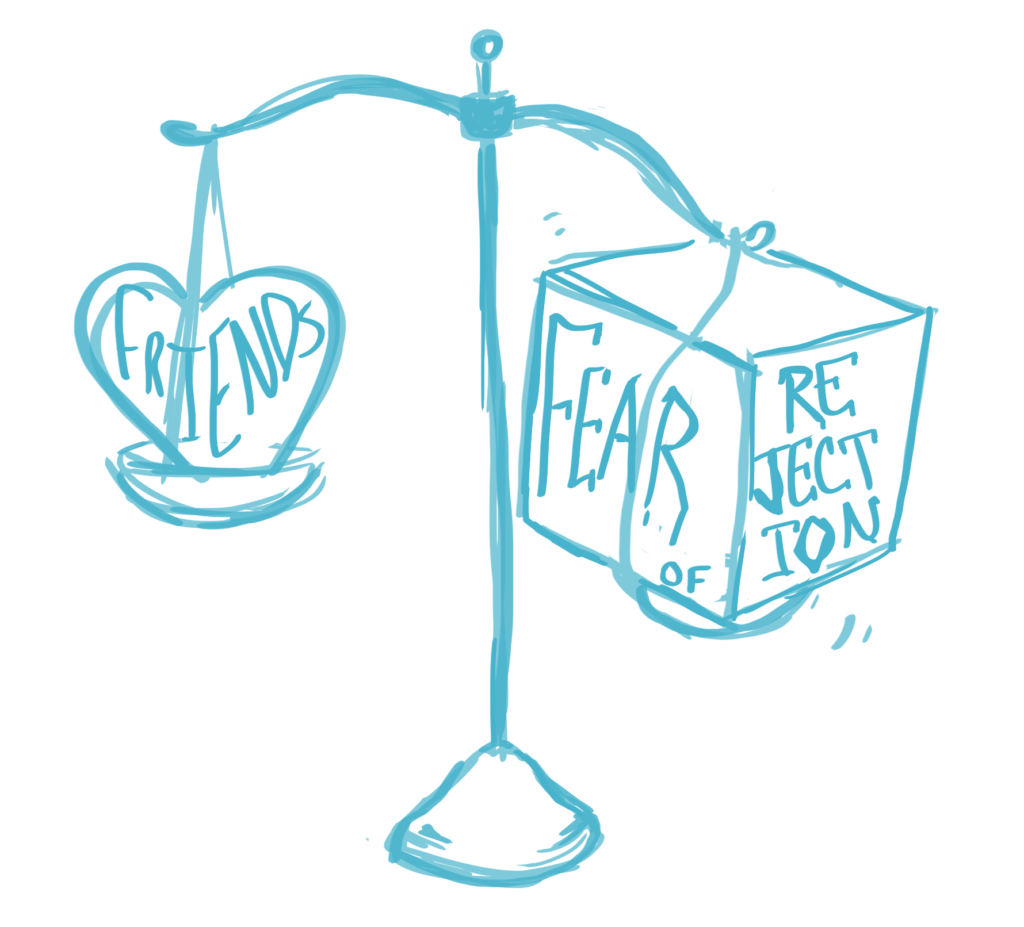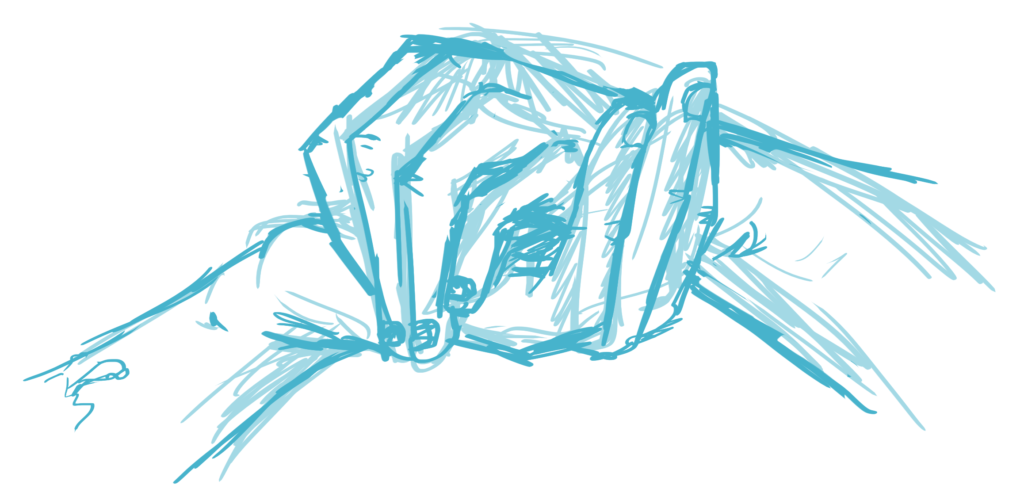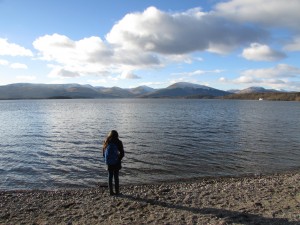Planting my feet on Columbia University’s campus for the first time is an experience I will never forget. Before me was an oasis of grand buildings decorated with ancient names like Homer or Herodotus that I’d never heard before. Like many college freshmen in New York City, I was moving to a new place with what seemed like the entire world sprawled out before me. That feeling can be exhilarating at times, but daunting during others. Between all of the new faces, foods, and experiences you encounter, creating a community for yourself is a must when it comes to maintaining health and even sanity. At this pivotal moment in one’s life it’s crucial to find safety in your situation.

Taken on 35mm film.
Honestly, Columbia’s makeup inherently discourages a sense of community: Tucked away in Morningside Heights, the campus removes itself from the hustle and bustle of Midtown, Downtown, and even its neighboring Harlem community. Beyond physical barriers like gates, the Ivy League university maintains its competitive nature. I’ve had countless conversations with fellow classmates who complain of the competition to do well in class. In addition to NYC’s toxic “hustle culture”, Columbia students also experience the pressures of the classroom. This especially applies to students interested in the STEM field, where professors often limit the amount of “A” letter grades they give per section. This can lead to tense relationships between students and classmates, perpetuating an “every man for himself” mindset. Instead of cultivating a community of students that uplift each other, this culture can incite gatekeeping and standoffish attitudes. In my opinion, this is counterintuitive to the nature of a university. This is especially disappointing as Columbia boasts of its location at the intersection of thousands of different cultures and people. Columbia doesn’t always encourage a culture of community, but there is still opportunity for the student to engage with their surroundings! It would be a shame to close oneself off from all that the university has to offer socially, geographically, and intellectually.
Though it may feel easy to shy away from the whirlwind of life that bustles outside of your dorm room, I argue that you have to intentionally form a safe space for yourself in college. The first few weeks of freshman year are incredibly formative. It’s such a beautiful time of life where most people have no expectations, no friends, and no curfew. Everyone is so open to meeting new people and trying new things. It’s important to lean into this social spirit that possesses everyone at the beginning of the year. The end goal isn’t to make lifelong friends, it’s simply helpful to have people to say “hi” to or invite out for adventures in the city. When you maintain a friendly and open mindset you’re fostering a more secure environment for yourself, and for the general community. Through this mindset, we can discard the idea that one must fail a class for another to pass it. While college is an inherently individualized experience, that doesn’t mean we have to face it alone.
Forming circles of people with similar interests or characteristics are always a great place to start. Basic commonalities were instrumental in forming new friendships. For me, I was able to connect with other students who had just moved from California to New York. These friendships provided an outlet for me to express my homesickness to someone who understood what I was going through. At the same time, I was also learning more about new people and cultures. Most importantly, we were able to support each other during one of the biggest transitions of our lives through the things we had in common.

Taken on 35mm film.
I can’t sit here and tell you to hunt down all of the people from your home state on the move-in day. What I’m suggesting is to start with what you know. Whether it be where you’re from, who you want to become, or how you got here, finding friends through basic commonalities is the kickstarter for maintaining sanity at college for the first time.
By Thomas Stewart
Thomas currently attends Columbia University and plans to double major in creative writing and human rights. At Columbia Thomas is a staff writer for the City News section of the Columbia Daily Spectator, where he publishes articles that concern the West Harlem community. In his free time, you can find him practicing music or trying new vegetarian recipes

For over 20 years, the Campus Clipper has been offering awesome student discounts in NYC, from the East Side to Greenwich Village. Along with inspiration, the company offers students a special coupon booklet and the Official Student Guide, which encourages them to discover new places in the city and save money on food, clothing, and services.
At the Campus Clipper, not only do we help our interns learn new skills, make money, and create wonderful e-books, we give them a platform to teach others. Check our website for more student savings and watch our YouTube video showing off some of New York City’s finest students during the Welcome Week of 2015.














